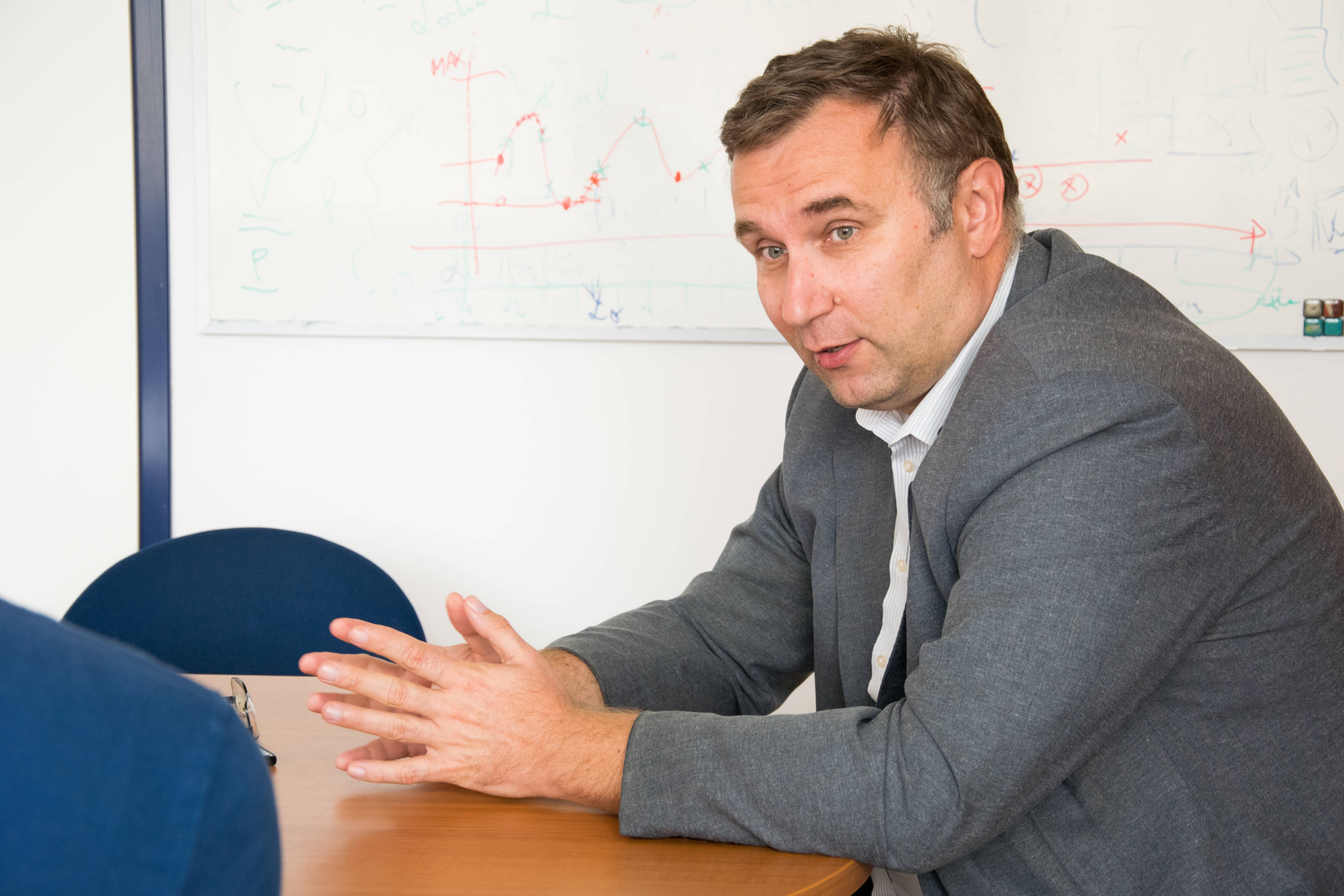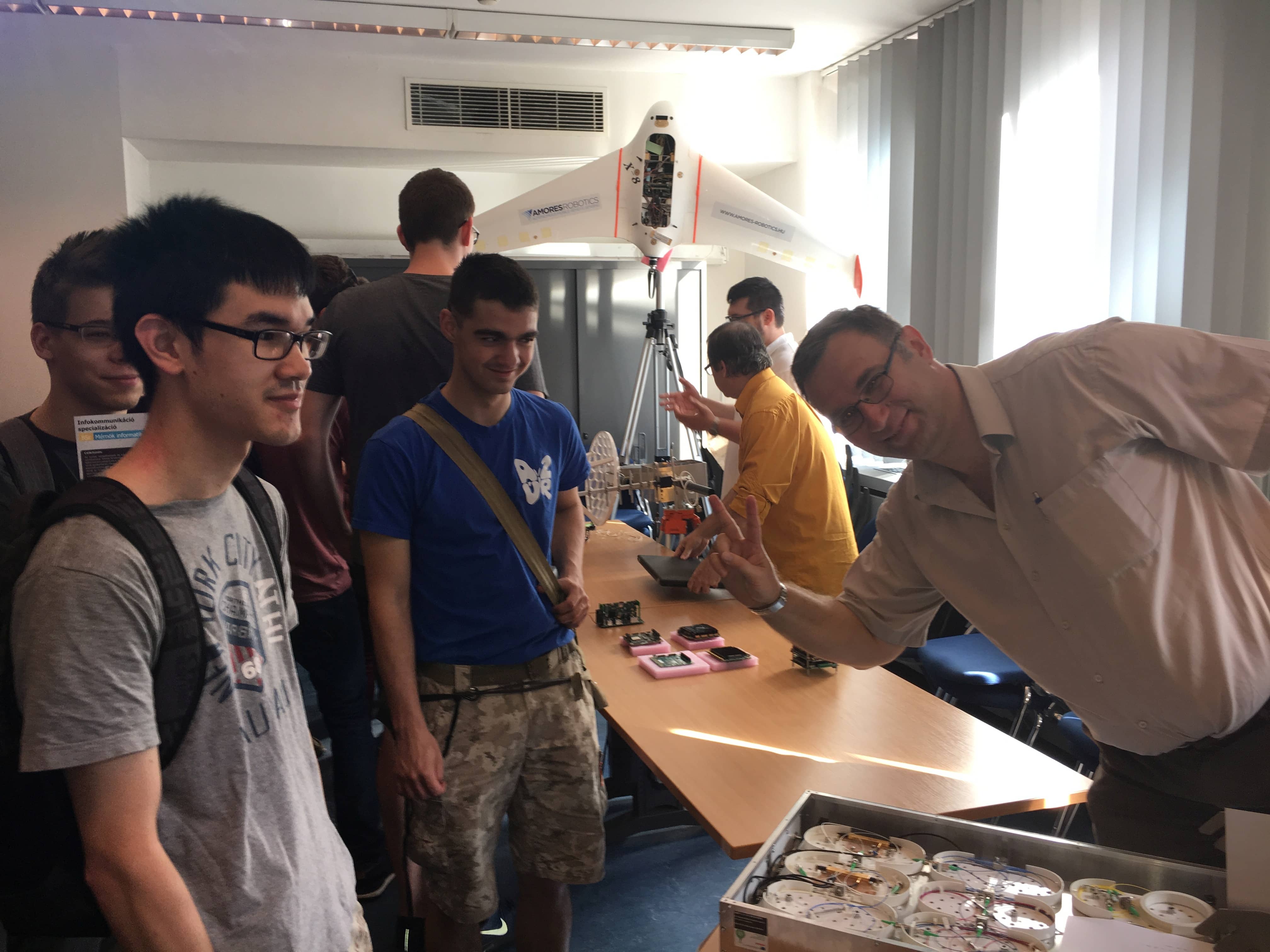How did you get interested in the topic of quantum physics?
Originally, my research area was related to wireless and mobile networks. Optimal signal detection in a mobile phone is computationally quite a hard problem if we want perfect detection. Therefore, various suboptimal solutions are used in everyday practice. I was working on a new suboptimal method in 1999 (while pretty much everyone else was hunting for the Y2K Bug) when one evening I found a short article about the idea of quantum computers in Élet és Tudomány (Life and Science) Magazine. I realized immediately that ‘wow, this is what I need’. I heard and learned about quantum mechanics during my undergraduate studies thus I had a solid basis to jump in.

What quantum networks are used at the moment?
Quantum test networks are under deployment all around the World. They are used to collect experiences and reveal technological challenges to be solved. The primary application scenario of these networks is quantum key distribution which will revolutionize the state-of-the-art security solutions. However, the midterm goal is to connect quantum computers to a global network and let them communicate directly in a quantum way.
What possibilities will open up when quantum computers and networks will spread?
According to the history of info-communications, the success of every new technology depends on one or two ‘killer’ applications. For example, GSM offered phone calls from and to everywhere. The cheap and quick email and its attachments result in the unbelievable fast spreading of the internet all over the world. One already identified driver of quantum communication is the strong security it can provide. Task-oriented (i.e. not universal) quantum computers are already used in medicine research where combinations of various molecules are tested by simulations instead of mixing them in real laboratories. Of course, new ‘killer’ applications will emerge as quantum devices and systems evolve. I am sure that the direct connection of quantum computers will somehow create a new paradigm in computation.
What do you think, how many years we will have to wait until quantum technology is ready for use on a big scale?
Quantum computers accessible via the internet are already available with certain limitations but by 2030 everyday users will have the possibility to use applications running on them. The advent of personal quantum computers is not so clear. Similar to the development of classical computers this phase requires significant steps forward in technologization. Concerning quantum networks, big players such as governments, multinational companies, and banks will use them for secure communications by 2030.

Will quantum computers and networks be more efficient in completing everyday tasks? Will they be available for office and home use?
It depends on. Computationally complex problems such as weather forecasting, healthcare diagnostics, etc. will be more accurate thus all of us will make a profit personally. Secure quantum communication will save our data and privacy against malicious hackers. I expect that home applications will mainly cover remote access and usage of central quantum computers in the forthcoming decade.
You are currently the R&D director of QNL. What is the focus of your research there?
My personal research focuses on quantum communication over classical telecom networks where classical and quantum information travel side by side on the same optical fiber. Regarding quantum computers, Me and my Ph.D. students work on efficient quantum optimization algorithms to solve computationally hard engineering problems. Of course, these topics cover a limited part of all the activities carried out within the frames of QNL.
